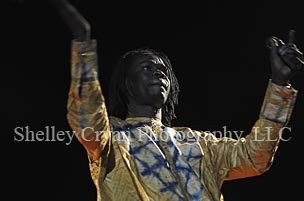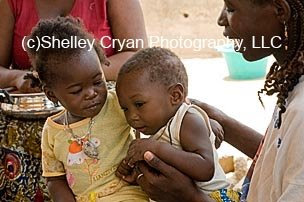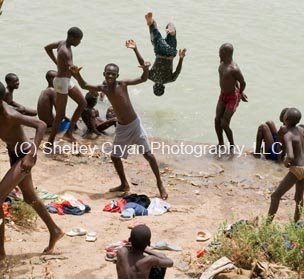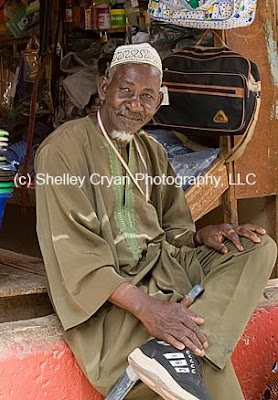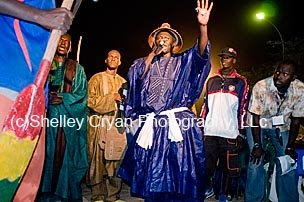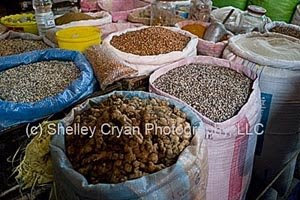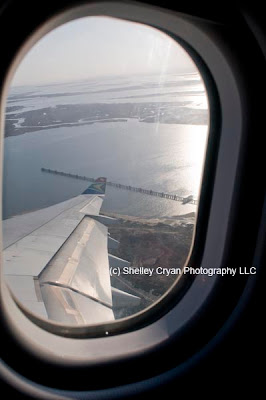
On Thursday morning, we drove north in our rented van to Senegal's second largest city, St. Louis. The trip took about 4 or 5 hours, and we only had to stop once to recover a part of the van that had fallen off along the way. Fortunately, a gentleman was riding near the back door of the van just in case that happened, and he was able to hop out and retrieve the errant door handle. His other job was to keep vendors from jumping in the back of the van during traffic jams.
Vendors? As we drove through different towns along the route, invariably traffic would slow to a crawl and out would come people selling all sorts of goods: peanuts, bananas, bags of water, cell phone cards, etc. Mostly they were young men, but sometimes there'd be a woman or child, too. In that case, all I could see from my window would be the tops of their heads and their hands held high with the goods, poking them in our open van windows. If the van started to move with traffic, they'd just run alongside. That's how we got snacks along the way. Very convenient, I must say. I never did work up the courage to buy a bag of water, although it did make me think of the water balloons we used to chuck out our dorm rooms on slow study nights...
Other times we'd get stopped by the police, who must have wondered what a van full of toubabs (white people) and local residents -- plus one Guatemalan three-year-old -- was doing. M. and the bus driver always handled the stern questions with an aura of calm, and after a few moments, we'd be given the go-ahead to continue on our way. I think it helped when M. told him his name -- he's a world-famous Senegalese drummer -- and that we were headed for a popular music festival, where he was scheduled to perform with the headliner.
At one such police stop, a particularly gruff-looking officer went through the usual line of questioning, in, of course, Wolof with a few French words. M. answered the questions, and, as seemed to be the custom, the officer then walked around the van and gave all of us passengers the once-over. I would have tried to affect a look of calm and innocence, but it occurred to me I didn't know what that actually looked like. He was standing right outside my open window, staring into the van, both eyebrows kind of knitted together in a rather menacing (to me, anyway) way. Then he spoke to us, in a low, serious voice, in perfect English, "You know, it's my birthday."
We sat, stunned, for a few moments. There was nothing else to do but spontaneously launch into a rousing chorus of "Happy Birthday." When we came to the part where you're supposed to say the person's name, there was only the slightest hesitation before we settled on "....happy birthday Mr. Policeman, happy birthday to you." He lifted one corner of his lips to a barely perceptible grin, turned on his heels, and walked back to his post alongside the road, and we drove off.
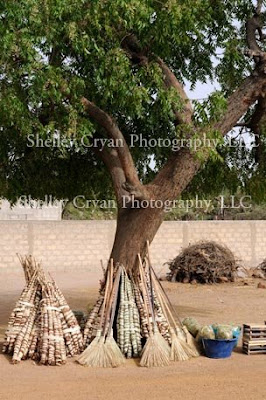 Monday's trip to Dakar from Podor took 12 hours, door-to-door, and we had to amuse ourselves along the trip. The leg from St. Louis-to-Dakar seemed particularly long.
Monday's trip to Dakar from Podor took 12 hours, door-to-door, and we had to amuse ourselves along the trip. The leg from St. Louis-to-Dakar seemed particularly long.

